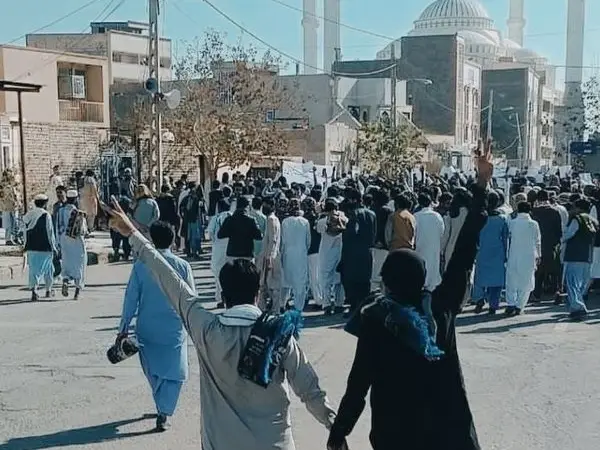The people of Zahedan in southeastern Iran continued their weekly protests on Friday, on the eve of anticipated rallies for the anniversary of Mahsa Amini's death in custody.
This marked the 50th consecutive week of street protests in this Sunni-majority city following sermons delivered by their Friday prayer leader, Mowlavi Abdolhamid.
During the demonstrations, participants voiced their discontent with the regime and its leader, Ali Khamenei, while also displaying signs of support for the upcoming Saturday rallies. The Revolutionary Guards and its paramilitary wing Basij were among the targets of their slogans. Reports on social media indicate that several individuals were arrested during Friday's demonstrations.
The Sunni leader of Zahedan, known for his passionate criticism of the regime, addressed Mahsa Amini's death during his Friday sermons. Her death on September 16th last year at the hands of the morality police sparked months of anti-government protests, constituting the most significant opposition against the Islamic regime since its establishment in 1979.
"Why should someone be killed for not wearing a hijab?" Abdolhamid questioned, highlighting that protesters are not subjected to lethal force or violence elsewhere in the world. Approximately 600 people lost their lives during the regime's crackdown on protests, with hundreds suffering injuries that resulted in blindness or permanent damage as security forces opened fire on demonstrators.
Abdolhamid implicitly referred to a recent meeting between Iran's Supreme Leader and a group of Baluch people aimed at pacifying the community, which has been protesting since the government's violent crackdown last September, known as "Bloody Friday." On September 30, 2022, about 100 citizens, including women and children, lost their lives due to direct gunfire from military and security forces, with many succumbing to head and chest injuries.
Abdolhamid appealed to the authorities, urging them to release political prisoners and ensure justice is served for the perpetrators of Bloody Friday if they genuinely aim to ease tensions within the community.
Commending what he referred to as an "awakening" in Iranian society, the outspoken cleric stated, "Today, Iranians from all backgrounds, ethnicities, and religious affiliations have united" against 44 years of failed policies by the Islamic Republic. He asserted that "awakening signifies the commencement of victory and progress for any nation."
Similar sentiments were echoed by other activists and community leaders, including Iran's exiled prince, Reza Pahlavi, who interacted live with people through his Instagram page later in the day. Pahlavi, a prominent figure in the current wave of protests, emphasized that individuals from all walks of life and regions of the country have collectively rejected the Islamic Republic.
The son of the last Shah of Iran, who has long advocated for a secular and democratic Iran rather than a monarchy restoration, has been engaging in international outreach efforts to garner global support for what he terms the "Iranian revolution." He reiterated his call for a substantial turnout during Saturday's protests, asserting that "freedom is within reach" if people unite against the regime.
In recent weeks, the regime has intensified its efforts to suppress dissent as part of a broader intimidation campaign aimed at discouraging protests, resulting in the arrest of dozens of individuals this week. Security measures have escalated in anticipation of the first anniversary of Mahsa Amini's death and the start of the Women, Life, Freedom protests. Heavily armed military forces have been deployed in restive regions, particularly in Kurdish-majority cities, and anti-riot police forces have become increasingly visible on the streets of major cities.
